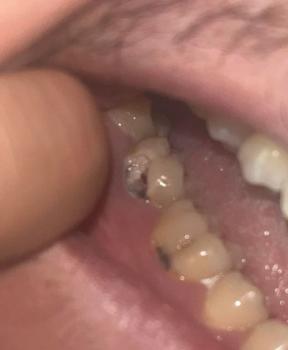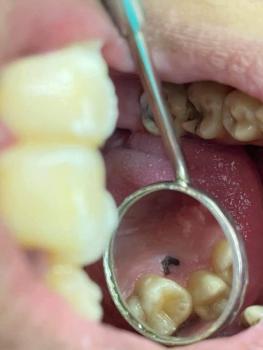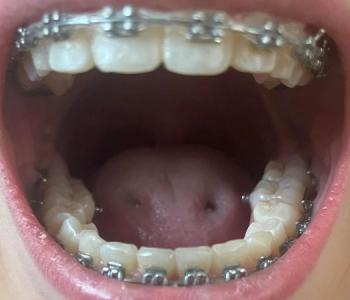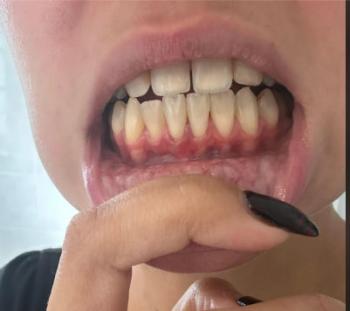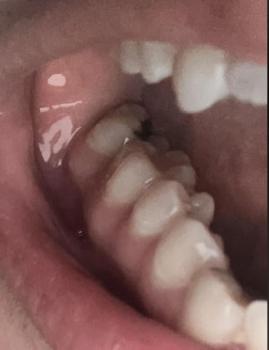Transforming Smiles, Restoring Confidence.
Manila by Midnight: How Sleep Deprivation Fuels Canker Sores
Language :

Topics:
The Manila Midnight: More Than Just a Canker Sore?
If you’ve ever had a small, painful crater appear inside your mouth, you’ve met the canker sore. And if you live a high-stress, sleep-deprived life in a city like Manila, you might be on a first-name basis with them.
Let us introduce you to Johnny.
Johnny is a call center agent in the heart of Makati. His world runs on a reversed clock—while Manila sleeps, he’s talking, troubleshooting, and meeting targets for customers halfway across the globe. His diet is a revolving door of instant coffee, siomai rice, and whatever is open at 4 AM. Sleep is a luxury, not a routine.
Lately, Johnny has noticed a familiar enemy: a small, white, haloed spot on the inside of his cheek. It stings when he eats his adobo, and it burns when he talks for hours on end. It’s a canker sore, and for Johnny, it’s a monthly visitor.
What Johnny doesn’t realize is that this little sore is more than just a nuisance; it’s a flare gun signaling a weakened immune system, a direct consequence of his chronic lack of sleep and stress. And if neglected, worse things are coming.
What Exactly is a Canker Sore?
Canker sores, known medically as aphthous ulcers, are small, shallow lesions that develop on the soft tissues in your mouth—your inner cheeks, lips, tongue, or the base of your gums. It’s crucial to remember:
-
They are NOT cold sores. Cold sores are caused by a virus and appear on the outside of your lips. They are contagious. Canker sores are not contagious.
-
They can be incredibly painful, making simple acts like eating, drinking, and talking a challenge.
For most people, a canker sore is a temporary problem, healing on its own within one to two weeks. But for someone like Johnny, with a consistently weakened immune system, they can appear more frequently, be larger, and take longer to heal.
The Warning Signal: Why You Shouldn't Ignore Them
For Johnny, a single canker sore might not seem like a big deal. But his body is trying to tell him something. Constant stress and sleep deprivation are brutal on the immune system. When your defenses are down, your body is more susceptible to these outbreaks.
If neglected, the issue can compound. What starts as one small sore can become multiple, larger sores. The pain can become severe enough to impact nutrition and hydration. Furthermore, a chronically stressed and inflamed body is a breeding ground for more serious health issues down the line. If you have canker sores that are unusually large, incredibly painful, or that simply don’t seem to heal after two weeks, it’s time to check with your doctor or dentist.
Finding a Cure: Soothing the Pain and Promoting Healing
So, what can Johnny—and anyone else suffering from these painful ulcers—do?
1. Over-the-Counter Relief:
-
Topical Gels and Pastes: Products like Orajel or Anbesol contain numbing agents like benzocaine that can provide temporary pain relief.
-
Mouth Rinses: Antimicrobial mouthwashes can help keep the sore clean and prevent secondary infection, reducing healing time.
2. Professional Medical Treatment:
If sores are severe, a dentist or doctor might prescribe:
-
Corticosteroid Ointments: To reduce intense inflammation.
-
Nutritional Supplements: If a deficiency (like B-12, folate, iron, or zinc) is the root cause.
3. Lifestyle and Home Care (The Most Important Step for Johnny):
-
Avoid Trigger Foods: Spicy, acidic, or salty foods (like sinigang or salted chips) can aggravate the sore.
-
Practice Gentle Oral Hygiene: Use a soft-bristled toothbrush and avoid toothpaste containing sodium lauryl sulfate (SLS), which can be an irritant.
-
Manage Stress and Sleep: This is non-negotiable. It’s the cornerstone of preventing future outbreaks. Easier said than done, but crucial for long-term health.
An Old Folk Remedy: Can Tawas Help?
In the Philippines, it’s common to hear about using tawas (alum) for canker sores. Tawas is an astringent, meaning it can contract tissues and help dry out the sore.
Can it help? Anecdotally, many people find that dabbing a tiny, powdered crystal of tawas on the sore can reduce its size and discomfort. The astringent property might temporarily tighten the area and reduce fluid secretion.
But a word of caution:
-
It can sting intensely. Applying tawas to an open wound is notoriously painful.
-
It is not a cure. It may provide temporary symptomatic relief but does not address the underlying cause (like Johnny’s sleep deprivation).
-
Consult your dentist first. Modern, medically-proven treatments are often safer and more effective. It’s always best to seek professional advice before trying folk remedies.
Johnny’s story is a common one in the 24/7 hustle of Manila. That small canker sore is his body’s cry for help. By listening to it—by prioritizing sleep, managing stress, and caring for his oral health—he can silence the pain and build a stronger defense for his overall well-being.

